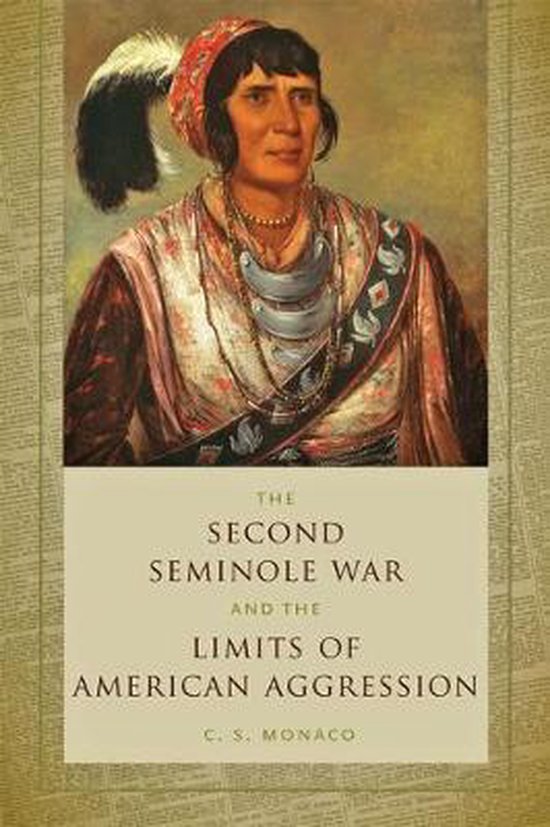
The Second Seminole War and the Limits of American Aggression
The Second Seminole War (1835–1842) was the last major conflict fought on American soil before the Civil War. The early battlefield success of the Seminoles unnerved US generals, who worried it would spark a rebellion among Indians newly displaced by President Andrew Jackson's removal policies. The presence of black warriors among the Seminoles also agitated southerners wary of slave revolt. A lack of decisive victories and a series of bad decisions—among them the capture of Seminole leader Osceola while under the white flag of truce—damaged the US Army's reputation at home and abroad. Desertion was rampant as troops contended with the subtropical Florida wilderness. And losses for the Seminoles were devastating; by the war's end, only a few hundred remained in Florida.
In his ambitious study, C. S. Monaco explores the far-reaching repercussions of this bloody, expensive campaign. Taking an interdisciplinary approach, Monaco not only places this protracted conflict within a military context but also engages the various environmental, medical, and social aspects to uncover the war's true significance and complexity.
By examining the Second Seminole War through the lenses of race, Jacksonian democracy, media and public opinion, American expansion, and military strategy, Monaco offers an original perspective on a misunderstood and often-neglected chapter in our history.
"This highly recommended title replaces John K. Mahon's History of the Second Seminole War, 1835–1842 as the definitive work on the conflict. Essential."—Choice
"An important book on an often-neglected topic. Monaco is a skilled writer. He has distilled extensive archival research from across the United States—along with a robust list of newspapers and published memoirs—into eleven succinct chapters. Monaco's work will surely be a valuable resource for historians and students of American Indian Removal in the coming years."—Civil War Book Review
"A strong contribution to American history, in the current paradigm of settler-colonial studies. Monaco writes with fascinating ecological insight, keenly critical revisions of standard ideas, access to newly discovered documentary sources, and a commendable sense that he is writing about perception and rhetoric as much as about (sometimes unascertainable) fact."—lection
A major study of a costly and influential Jacksonian-era war.
The Second Seminole War (1835–1842) was the last major conflict fought on American soil before the Civil War. The early battlefield success of the Seminoles unnerved US generals, who worried it would spark a rebellion among Indians newly displaced by President Andrew Jackson's removal policies. The presence of black warriors among the Seminoles also agitated southerners wary of slave revolt. A lack of decisive victories and a series of bad decisions—among them the capture of Seminole leader Osceola while under the white flag of truce—damaged the US Army's reputation at home and abroad. Desertion was rampant as troops contended with the subtropical Florida wilderness. And losses for the Seminoles were devastating; by the war's end, only a few hundred remained in Florida.
In this ambitious study, C. S. Monaco explores the far-reaching repercussions of this bloody, expensive campaign. Taking an interdisciplinary approach, Monaco not only places this protracted conflict within a military context but also engages the various environmental, medical, and social aspects to uncover the war's true significance and complexity.
By examining the Second Seminole War through the lenses of race, Jacksonian democracy, media and public opinion, American expansion, and military strategy, Monaco offers an original perspective on a misunderstood and often-neglected chapter in our history.
| Auteur | | C. S. Monaco |
| Taal | | Engels |
| Type | | Paperback |
| Categorie | | Geschiedenis |